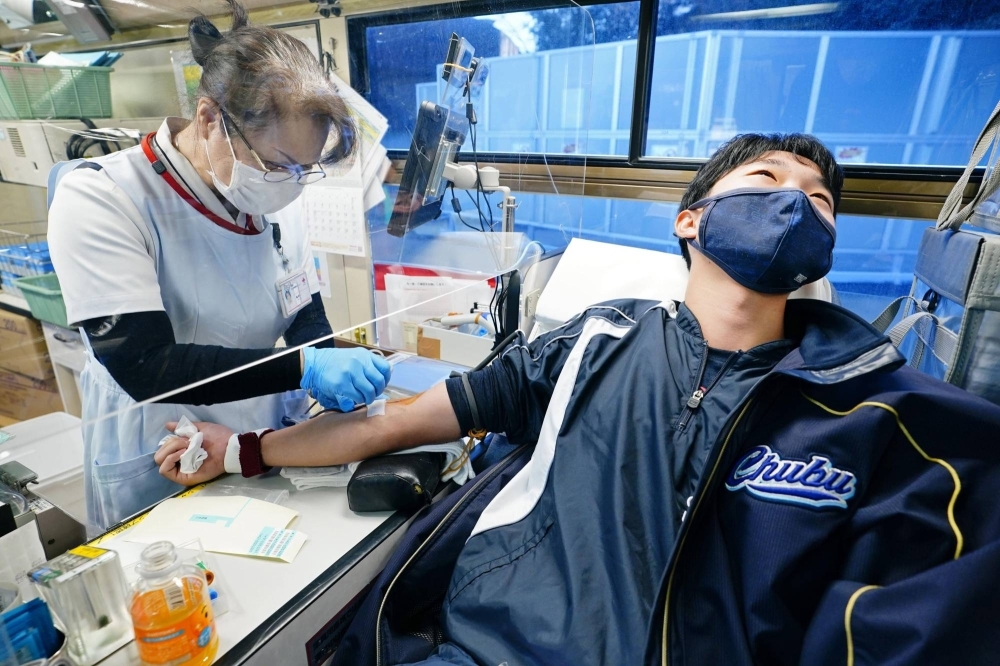Blood
Concerns mount for elderly as fewer Japanese donate blood
The number of people under the age of 40 who have donated blood in Japan in the last decade has declined 33%, according to data from the Japanese Red Cross Society, posing a concern as the country’s population rapidly ages.
Despite a partial recovery in donations by teens since the COVID-19 pandemic, the Red Cross and health ministry are stepping up efforts to raise awareness, particularly among young people, about the importance of making voluntary blood donations.
In Japan, people between the ages of 16 and 69 can donate blood. Of the 5.01 million total donations in fiscal 2022, 217,000 were by teens, 696,000 were from those in their 20s and 753,000 in their 30s.
The majority of the donated blood is used in the treatment of people in their 50s and older. A continued decline in donations by younger generations could pose a serious supply shortage going forward as demand overwhelms available supply.
The Red Cross partly attributed the decline to the fact fewer high schools are taking part in blood donation campaigns.
A member of a university baseball team participates in a group blood donation campaign in Aichi Prefecture in January 2022.
| Kyodo
The ratio of high schools that took part in the donation program was around 20%. Thirty years ago, the number was about 60%.
The government in June called for additional efforts to educate teens about blood donation in its annual basic policy on economic and fiscal management.
The Health, Labor and Welfare Ministry is considering creating a simple handbook on blood donation to educate students who are not yet eligible on how vital donations are to society, according to officials.
The Red Cross has introduced a smartphone app, where registered members can make blood donation reservations and also earn points that can be exchanged for gifts.
“Many lives are saved by blood donations. We hope to get as many people to cooperate as possible,” a ministry official said.

